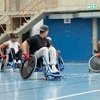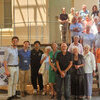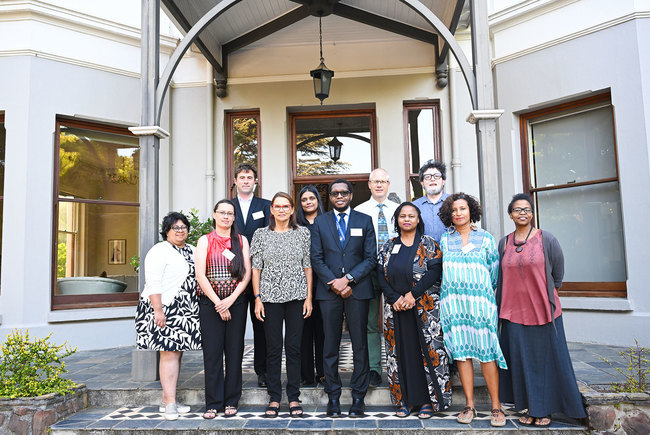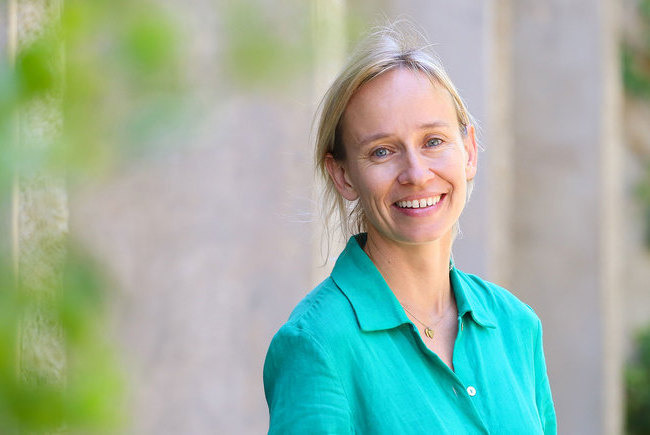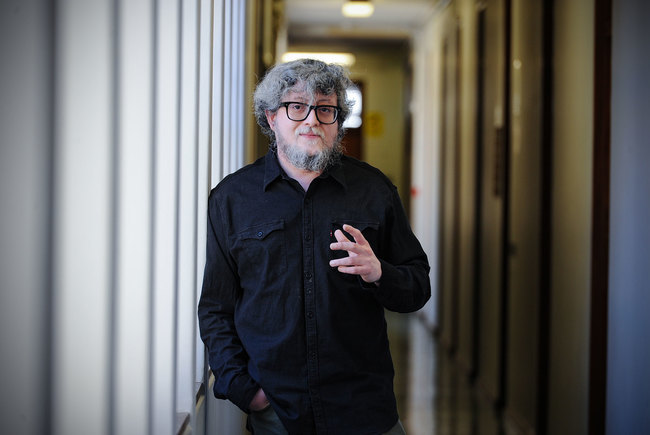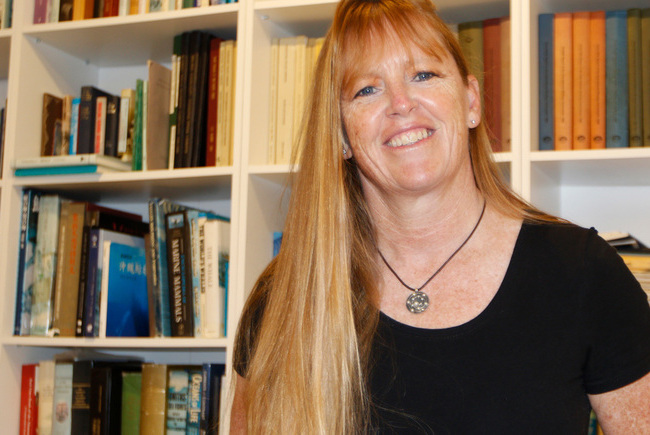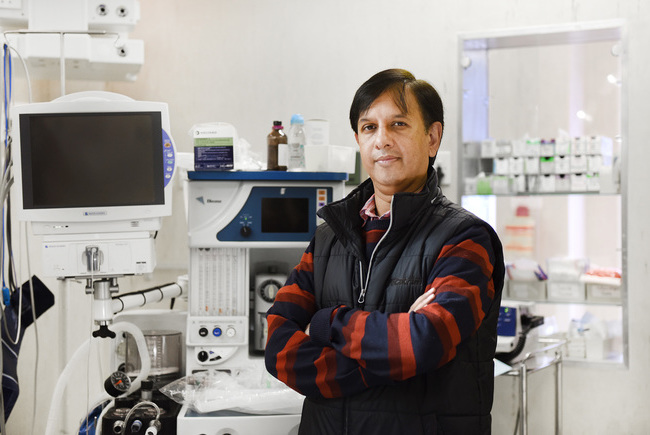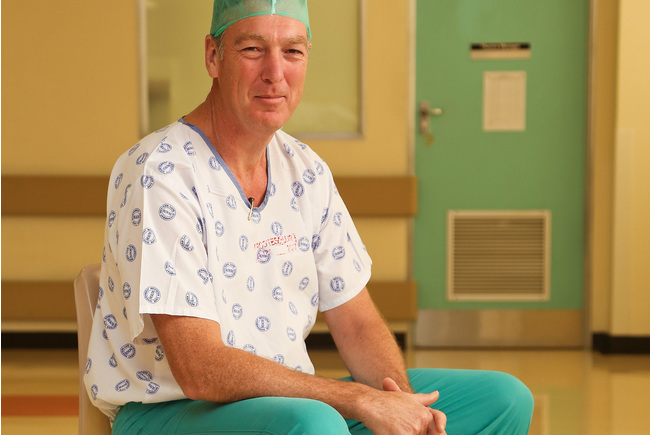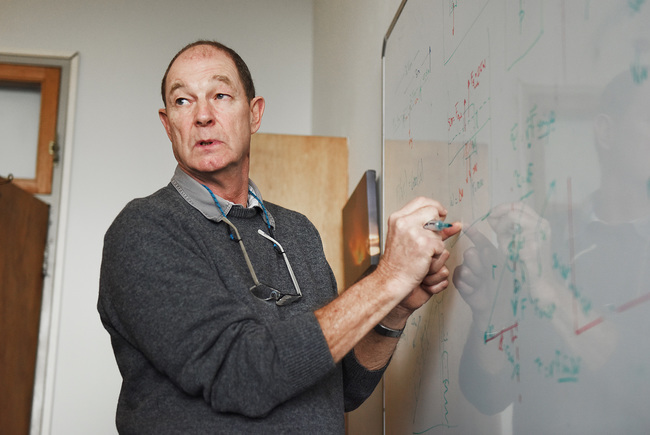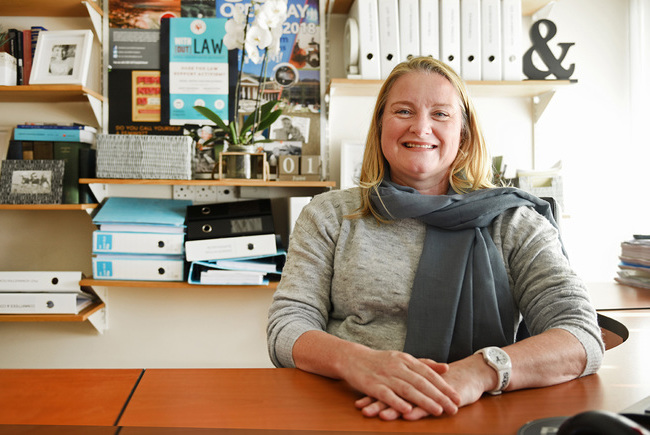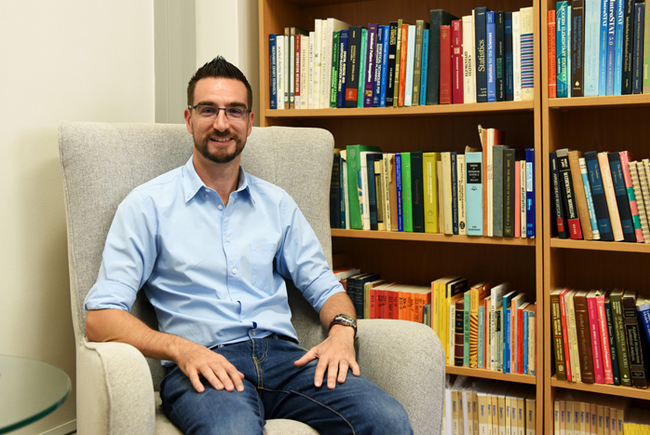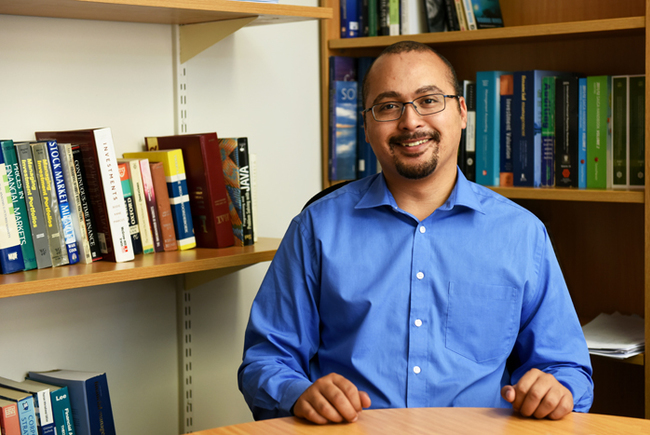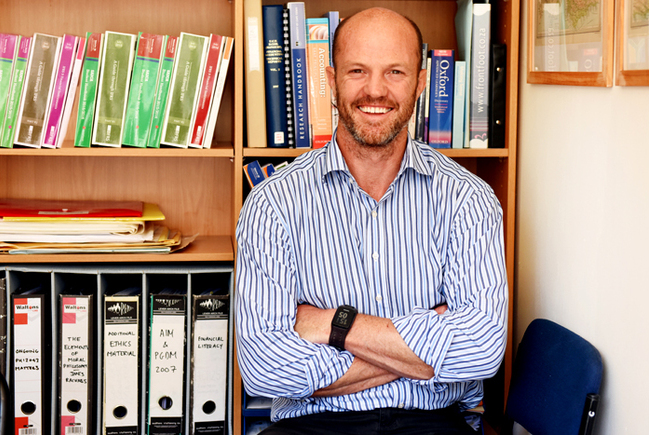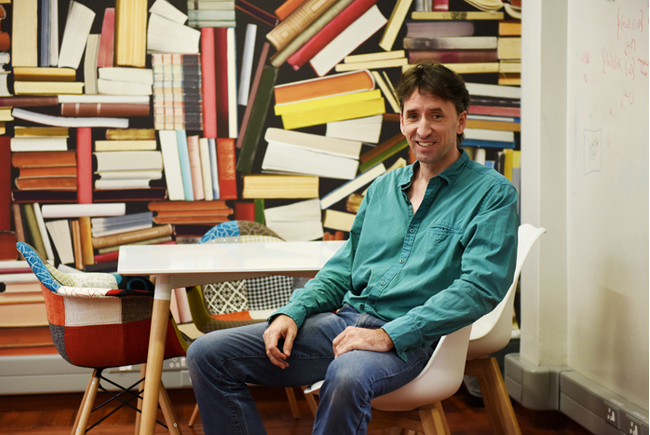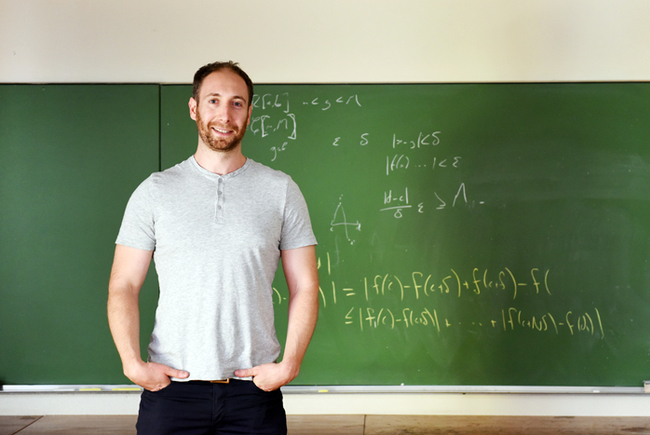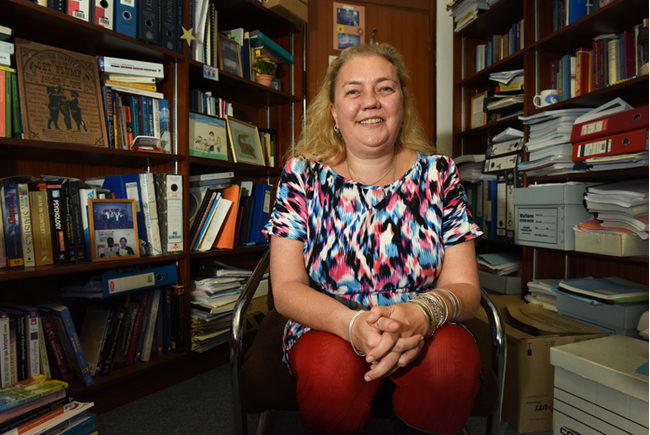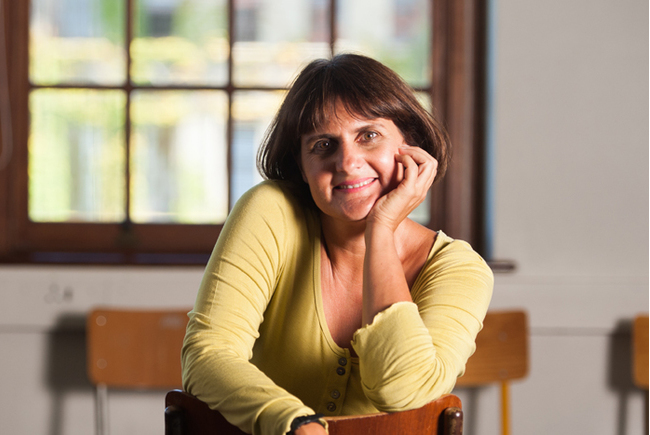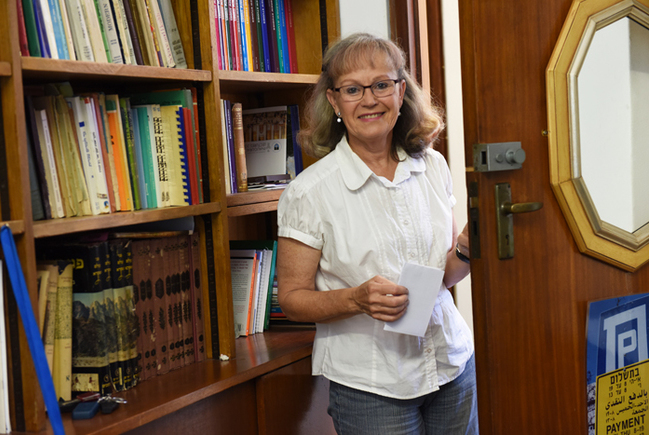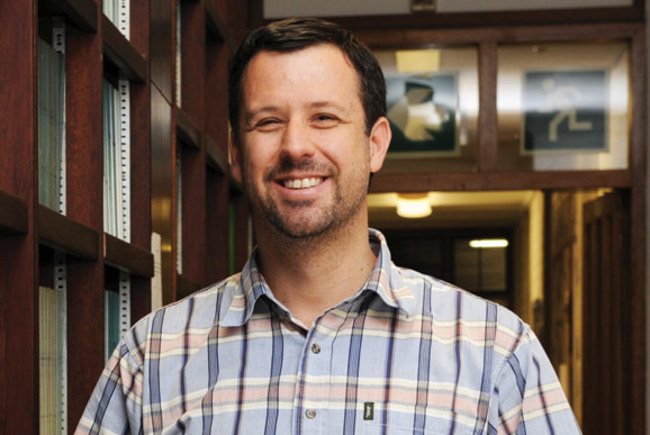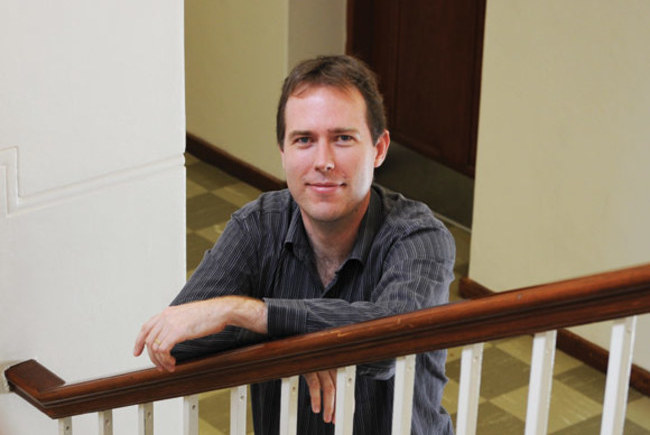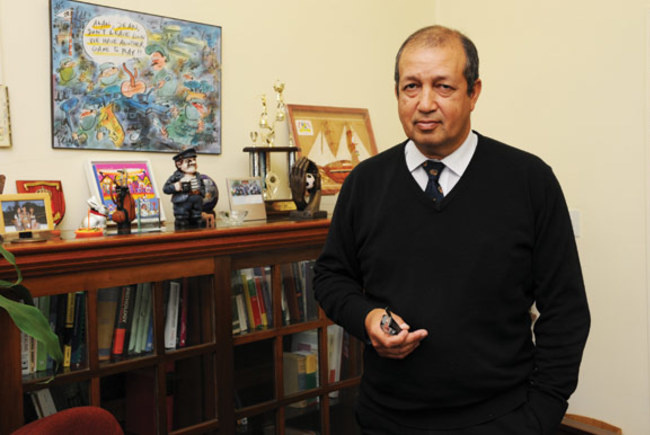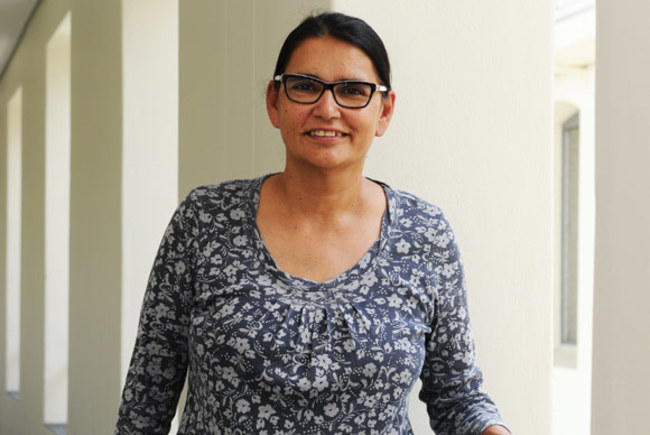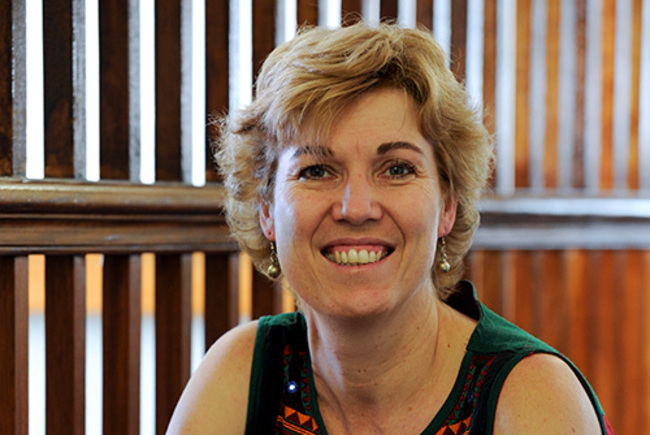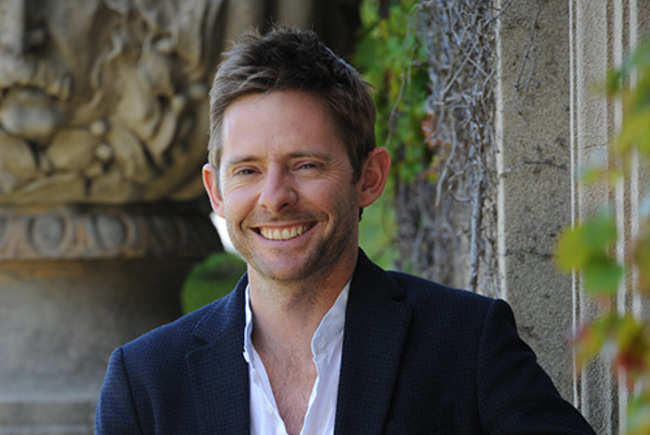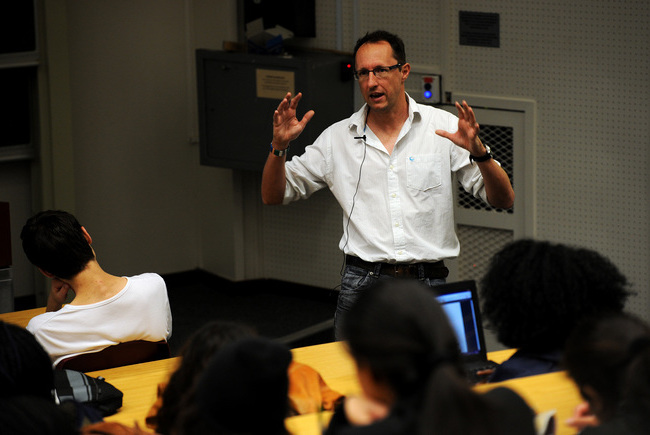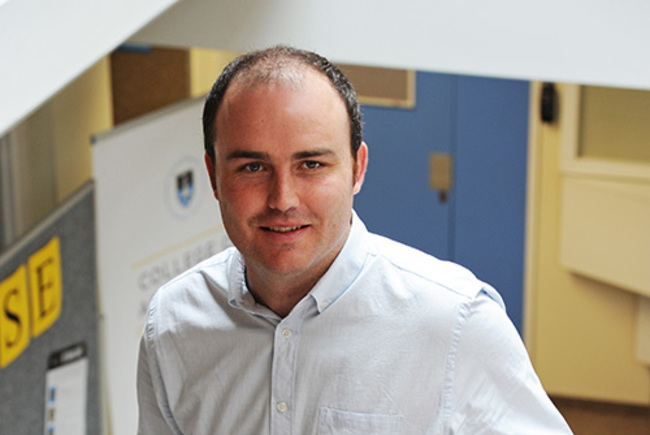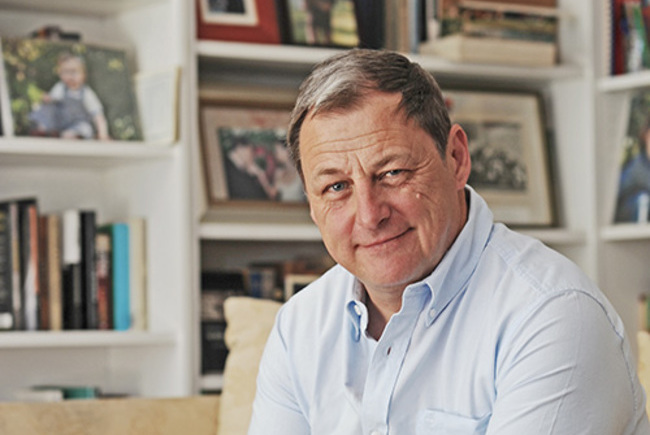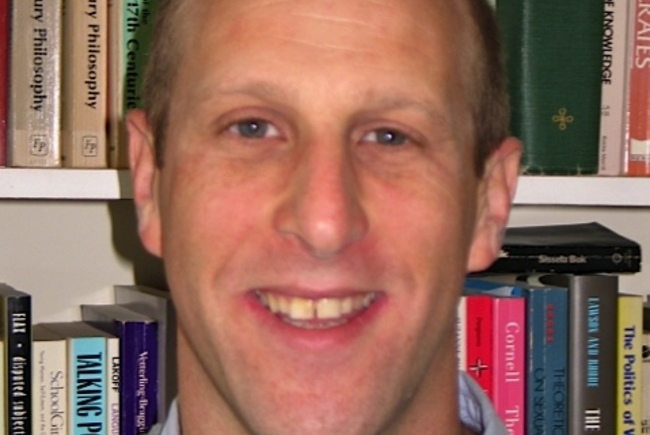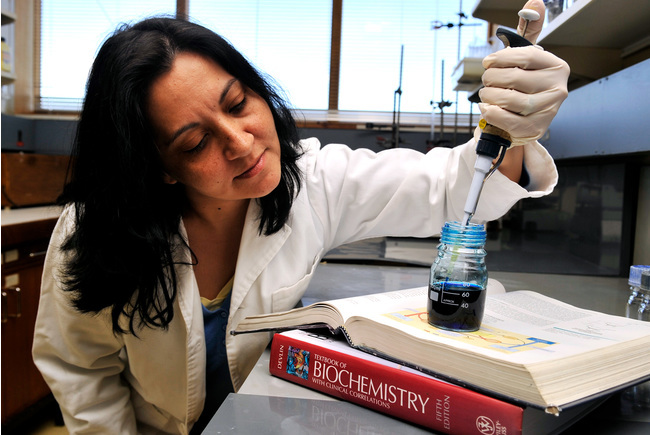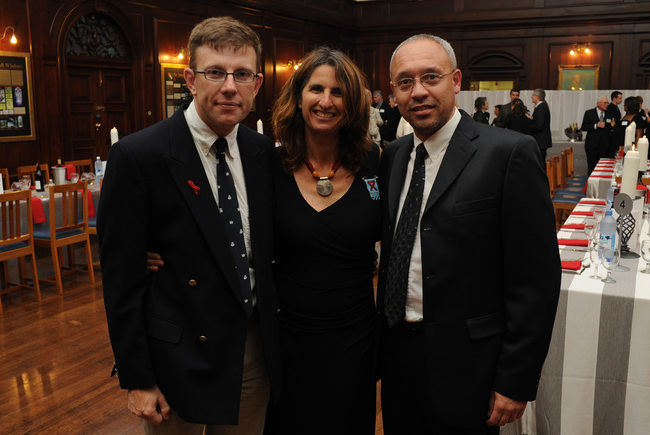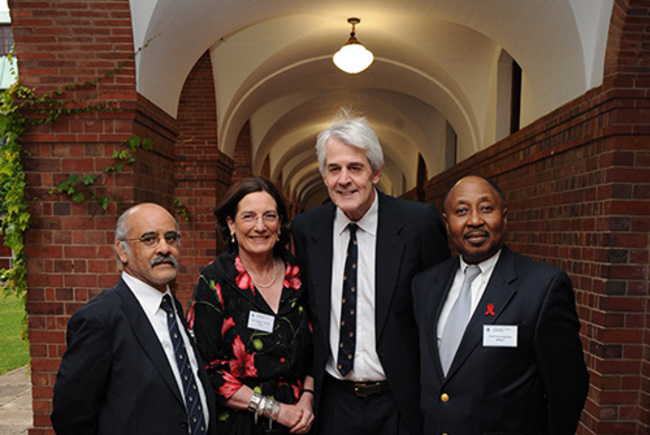Knowledge is not fixed in textbooks
30 November 2015 | Curated Helen Swingler. Photo Michael Hammond.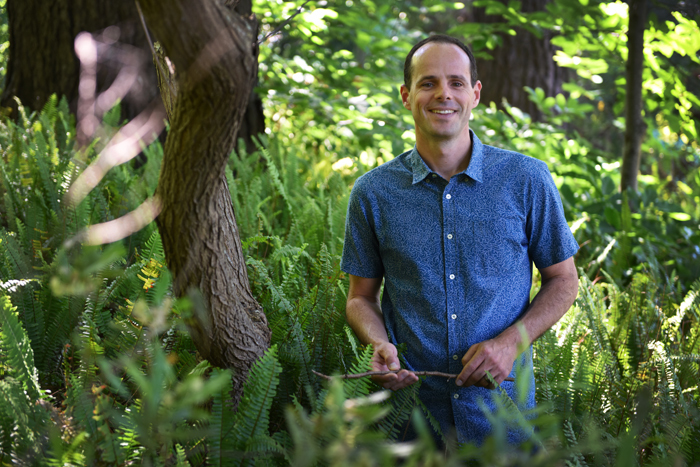
A teacher's job is to help students realise that the creation of scientific knowledge is on-going and dynamic, and that they have a role to play in that, says Distinguished Teacher Awardee Dr Adam West of the Department of Biological Sciences.
Q: What do you teach and how did you become a teacher?
A: I teach across all undergraduate levels in the science faculty, as well as supervise honours, master's and PhD postgraduate research students. My topics cover cell biology, plant ecophysiology and global change ecology. In addition to my core teaching, I also teach on a postgraduate stable isotope course run in the archaeology department, and have recently contributed to the PGCE course in the Department of Education. How did I get to be teaching? The opportunity to teach at a university was a major motivation for pursuing an academic career.
Q: What enthuses you about being in front of a class or group, or helping an individual?
A: To me, every teaching opportunity is effectively an interaction with the future, and my chance to make a difference. That is an amazing opportunity to have access to.
Q: How would you describe your style?
A: Enthusiastic. Creative. Demanding.
- Enthusiastic:
- I believe enthusiasm in a subject is the best gift you can give a student. If they are enthusiastic, their self-study will rapidly surpass your direct teaching.
- Creative:
- Being a little different is critical for engaging your student's attention. It also makes the teaching experience fun, which is important for a good learning environment.
- Demanding:
- I believe that true enjoyment of a subject comes from grappling with and mastering something difficult. This also provides the best long-term educational outcome.
Q: What do you think makes a good teacher?
A: For me, a good teacher is someone who is as interested in the people receiving the knowledge, as they are in the knowledge itself.
Q: How do you adapt to diverse classes in terms of language, culture, nationality, and so on?
A: My biggest lessons in multicultural teaching came from my experiences in the US as a graduate student. As an international student, I attended a “cross-cultural learning” course to help the international graduate student teachers with their interactions with US undergraduates. Some of the best tips were not to shy away from your personal experiences and culture, but to be proud of them and recognise that, used correctly, they can enhance the students' learning experience. But, also to recognise that your cultural references may require decoding to be accessible to other cultures and language groups. Practical tips included providing more than one explanation, in more than one style, to help to bridge the gap between cultures, while not losing the personality of the lecturer.
Q: Does technology play a big role for you?
A: A little. I think technology should enable the learning environment, not be a substitute for it. I use VULA extensively, and in-class online polling (developed by the physics department) for interaction with large classes. But I avoid the use of technology that would reduce contact hours as this risks losing a crucial aspect of our teaching, the personal interaction with teachers and peers that really defines the key aspects our students' learning experience.
Q: And how does your research shape your teaching?
A: I fully subscribe to the view that research-led education is a wonderful way of making science less abstract and empowering students. Most students arrive at university thinking that all scientific knowledge is fixed in textbooks, and was created mostly in the northern hemisphere. Our job at UCT is to transform that thinking into one where students realise that the creation of scientific knowledge is on-going and dynamic, and can be done HERE by THEM. I believe that the best way to do that is through exposing them to my research (and that of my colleagues) from day one. This makes the material real and relevant and opens the gate for those wishing to continue as postgraduate students themselves.
However, a guiding principle of mine at the undergraduate level is to recognise that most of the students are not going to become academic scientists. But, they will become scientifically educated citizens. In that regard, instilling the skills of balanced skepticism and critical thinking are of paramount importance, as they will carry these with them for life, long after the specific knowledge they learnt is forgotten. To this end, I strive for all my material to blend scientific rigor with real-world, non-specialist relevance.
Q: Who was your best teacher, whether at school, university or elsewhere, and what made you remember them?
A: I couldn't identify one “best” teacher. But I remember key attributes from all of my teachers. Their strengths and weaknesses become part of your learning experience and ultimately your philosophy. It is a big responsibility.
Q: What are your five top tips for teachers?
A:
- HOW you teach is actually more important than WHAT you teach. Without making the learning environment a positive one, you cannot succeed as a teacher.
- A positive learning environment must not come at the cost of making it easy. With sufficient rationale, students embrace the most difficult challenges, and derive the satisfaction and empowerment that comes from tackling something difficult.
- Make the effort to know your audience, their backgrounds and expectations. Tailoring your material to a level at which it can be effectively absorbed is the key challenge for all teachers.
- Ask yourself if you are providing an experience that is richer than they could achieve from the internet, or textbook. If not, adapt.
- Be brave, take some risks and personalise the experience. Teaching and learning is a human endeavour, made richer and more powerful through human connections. As a teacher, you have to be brave and give a little bit of yourself to every class. It can be scary, but it is exciting, and the potential rewards are enormous.
 This work is licensed under a Creative Commons Attribution-NoDerivatives 4.0 International License.
This work is licensed under a Creative Commons Attribution-NoDerivatives 4.0 International License.
Please view the republishing articles page for more information.
Distinguished Teacher Award
The Distinguished Teacher Award is the highest accolade awarded to teaching staff at all levels within the university. Through the award, the University of Cape Town acknowledges the primary place of teaching and learning in the university’s work.
2023
2022
2021
2020
2019
2018
2017
2016
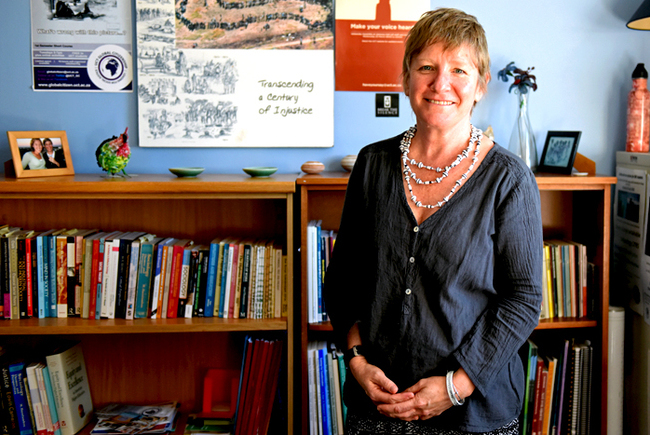
Distinguished Teacher Awardee Dr Janice McMillan's work is not discipline-specific; rather it's about transformative teaching and how we engage the wider world beyond the university. This community-based learning encourages students to think about themselves simultaneously as students, emerging professionals and active citizens.
30 Mar 2017



